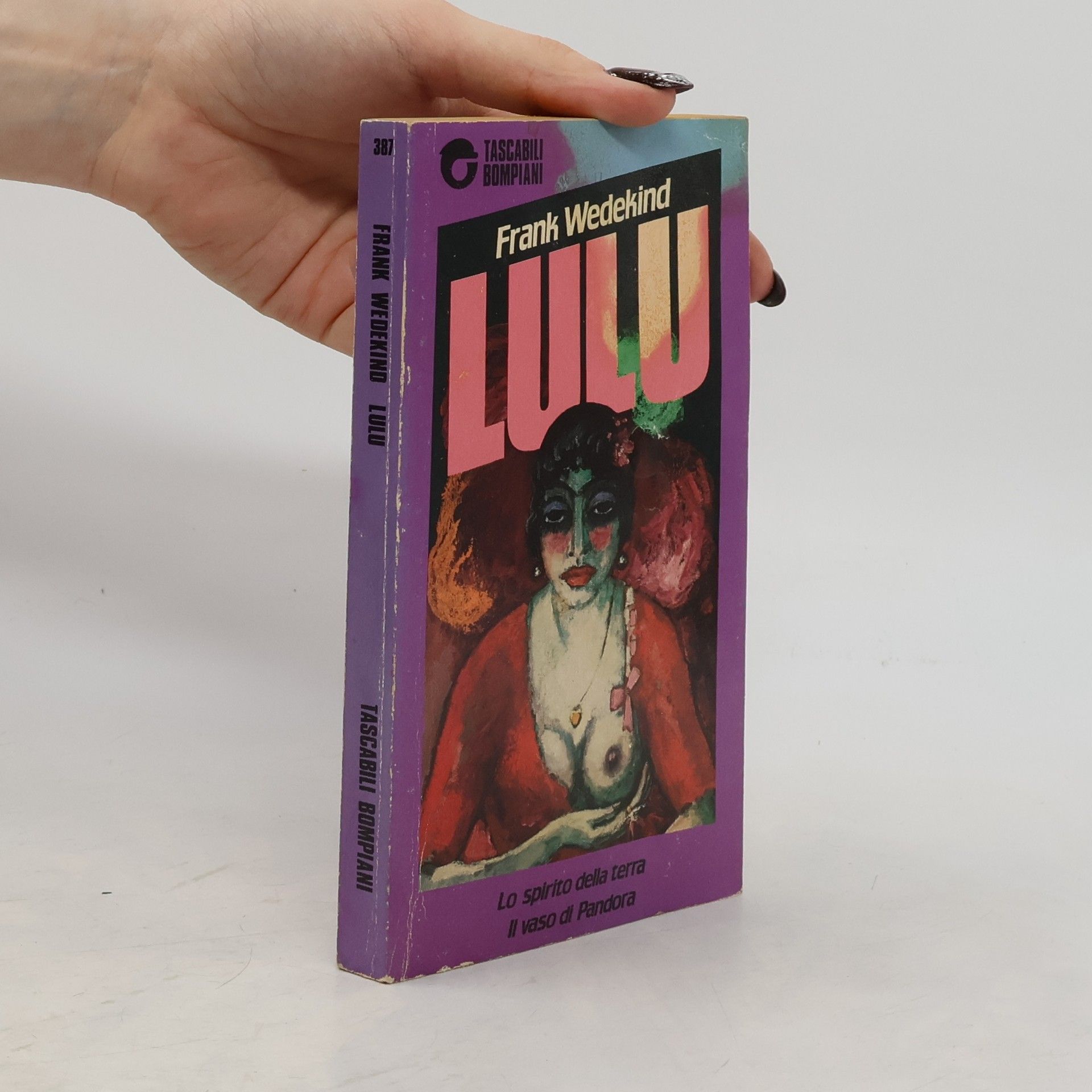Frank Wedekind Libri
Frank Wedekind fu un drammaturgo tedesco le cui opere criticarono aspramente gli atteggiamenti borghesi, in particolare riguardo alla sessualità. La sua scrittura, considerata un'anticipazione dell'espressionismo, ebbe una notevole influenza sullo sviluppo del teatro epico. Le sue opere sono note per le loro rappresentazioni provocatorie e spesso naturalistiche della psicologia umana e dei tabù sociali. Wedekind sfidò la morale tradizionale ed espose l'ipocrisia della sua epoca.







Lulu
Lo spirito della terra. Il vaso di Pandora
Lulu Plays and Other Sex Tragedies
- 296pagine
- 11 ore di lettura
Two of Wedekind's most seminal plays, Earth Spirit and Pandora's Box both focus on the actions of the young heroine Lulu.
"In their dynamic re-imagining of Spring Awakening, Steven Sater and Duncan Sheik have created a groundbreaking rock musical about adolescent love, the trials of puberty and the friendships that young people build in the face of an uncomprehending world. Inspired by Frank Wedekind's once-banned and still provocative German play from 1891, this Spring Awakening holds up a mirror to our own time, and has become the must-see musical of a new generation."--Jacket
Werke
- 840pagine
- 30 ore di lettura
Bürgerliche Scheinheiligkeit und Prüderie – Wedekind übte besonders in seinen Dramen immer wieder scharfe Kritik am Bürgertum. Und dennoch gehörte er mit seinen entlarvenden Theaterstücken zu den meistgespielten Dramatikern seiner Epoche. Dieser besonders schön gestaltete und hochwertig ausgestattete Band versammelt nicht nur die bekanntesten Dramen Wedekinds, wie zum Beispiel die sogenannten „Lulu-Dramen“ oder „Frühlings Erwachen“, sondern auch zahlreiche Gedichte und Prosastücke. :
InhaltsverzeichnisIlse - Franziska - Frühling - Der blinde Knabe - Konfession - Der Taler - Mein Käthchen - Morgenstimmung - Sommer 1988 - Brigitte B. - Die neue Kommunion - Schicksal - Coralie - Altes Lied - Bajazzo - Das Lied vom armen Kind - Tiefer Friede - Lulu - An einen Hypochonder - Der Zoologe von Berlin - Der Lehrer von Mezzodur - Der Tantenmörder - Auf dem Faulbett - Trost - Wilhelmine - Erdgeist - Auf eigenen Füßen - Donnerwetter - Nach Gellert - Schluß - Liebe - Die Realistin - An mich - Ein politisch Lied - Silvester - Im Heiligen Land - Aus den Böhmischen Wäldern - Des Dichters Klage - Die sechzig Zeilen - Tingel-Tangel - Der Andere - Herr von der Heyde - Parodie und Satire - Die Schriftstellerhymne - Trost - Menschlichkeit - Politische Disticha - Rückblick
Die Erzählungen in diesem Band reflektieren Frank Wedekinds kritische Haltung gegenüber der kleinbürgerlichen Prüderie und der Sexualmoral seiner Zeit. Mit einem einleitenden Essay über Erotik, der die Dominanz des Geistes über den Körper infrage stellt, thematisiert Wedekind die Spannungen zwischen Sexualität und gesellschaftlichen Normen. Die Sammlung bietet einen tiefen Einblick in die provokanten Ideen des Dramatikers, die bereits in seinen bekannten Bühnenstücken wie "Lulu" und "Frühlings Erwachen" zum Ausdruck kamen.
Die kommentierte zweibändige Ausgabe von Frank Wedekind (1864-1918) ermöglicht eine neue Entdeckung seines Werks. Band 1 umfasst Gedichte, Erzählungen und sein dramatisches Frühwerk "Frühlingserwachen", während Band 2 die dramatischen Hauptwerke enthält.


